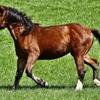
Equine Cushing’s Disease is also known as Pars Pituitary Intermedia Dysfunction (PPID). This means that the inhibitory function of the pituitary gland at the base of the brain is lost resulting in excess production of the normal hormones. This is shown by raised ACTH which circulates in the blood to the adrenal glands and causes excess cortis...
Read More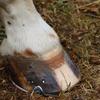
As the weather warms up and the spring grass is growing laminitis is a serious concern for many horse, pony and donkey owners at this time of year. What is laminitis? Laminitis is essentially inflammation of the laminae in the foot that interlock to suspend the pedal bone in the hoof capsule. This inflammation causes damage to the laminae leading t...
Read More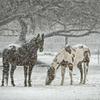
All horsey folk know that owning horses is not just a hobby but a lifestyle. Horses require care 365 days a year, including over christmas. Whilst Christmas is a time for eating, drinking, spending time with family (and your horse!) we must consider the safest way for them to enjoy the festivities too. Here are my top tips to keep everyone feeling...
Read More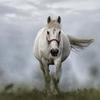
Dealing with minor cuts and abrasions is a common occurence for most horse owners. The first step is assessing the wound. It can be useful to clip or trim the hair from around the wound in order to better see the extent of the injury. It will also prevent contamination of the wound and reduce the risk of infection. If the wound is near/over a joint...
Read More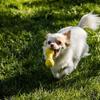
It is very common for dogs to get thorns or other sharp objects stuck in their paw when out on a walk or in the garden. If you notice your dog go acutely lame, not bear any weight at all on one leg or start chewing at his paw, then this is the most likely cause. How To Find The Thorn/s A thorn in your dog's pad can be very painful and he may be ups...
Read More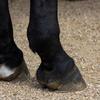
Foot abscesses or "pus in the foot" are one of the most common causes of lameness in horses, ponies and donkeys, particularly during warm, wet weather. They can be very sudden in onset and are usually very painful. Foot abscesses tend to be caused by bacteria tracking up the hoof wall or under the sole through weaknesses in the white line (where th...
Read More
Healthy kidneys are responsible for many different tasks most importantly filtering the blood of toxins and excreting them in urine. If the kidneys are not functioning properly then this can result in a variety of problems. Any condition which stops the kidneys performing properly is referred to as kidney or renal disease. It means some damage has...
Read More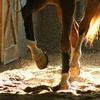
Hoof supplements are widely used within the equine community- we've all heard the saying "No Hoof, No Horse". Weak hoof structure leads to hoof wall problems such as quarter cracks, toe cracks, sand cracks, brittle hoof walls and hoof wall separation. These hoof wall defects often create an environment ideal for bacteria associated with white line...
Read More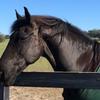
Good digestive health is essential to your horse's overall wellness and performance. The horse's gut is populated by billions of beneficial or "good" bacteria and protozoa - particularly in the colon and caecum of the hindgut. These organisms ferment the fibre (grass, hay etc) that horses eat. A key product of fermentation in the hindgut is volatil...
Read More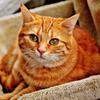
As with dogs, mild stomach upsets in cats are not uncommon. Typically a sudden change in diet, over-eating or an intolerance to a food not usually consumed can cause stomach upsets in cats. Starving for a period of time and giving a bland diet for 7 days before transitioning back onto their normal food is recommended. However cats should not be sta...
Read More